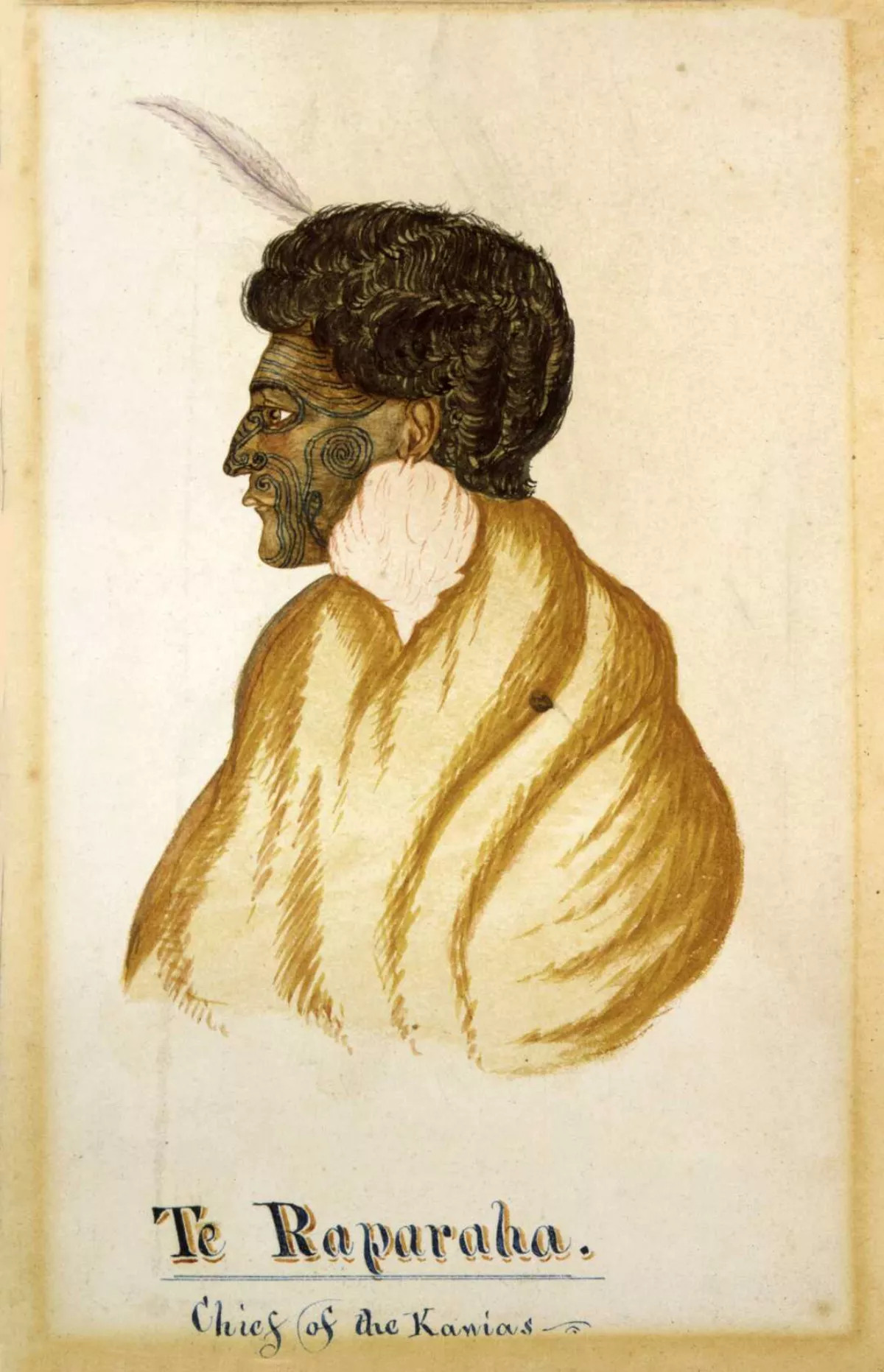 1.
1. One of the most powerful military leaders of the Musket Wars, Te Rauparaha fought a war of conquest that greatly expanded Ngati Toa southwards, receiving the epithet "the Napoleon of the South".

 1.
1. One of the most powerful military leaders of the Musket Wars, Te Rauparaha fought a war of conquest that greatly expanded Ngati Toa southwards, receiving the epithet "the Napoleon of the South".
Te Rauparaha remains one of the most prominent and celebrated New Zealand historical figures.
Te Rauparaha participated in land sale and negotiations with the New Zealand Company at the beginning of the colonisation of New Zealand.
An early signatory to the Treaty of Waitangi, Te Rauparaha was later central to the Wairau Affray in the Marlborough district, considered by many to be the first of the conflicts in the New Zealand Wars.
Te Rauparaha transformed Ngati Toa from a small tribe to one of the richest and most powerful in New Zealand, changing Maori tribal structures permanently.
Te Rauparaha was an accomplished composer of haka, with "Ka Mate" being well known due to its performance in sport.
Te Rauparaha's mother was Parekowhatu of the Ngati Raukawa iwi and his father was Werawera of Ngati Toa.
Te Rauparaha was born either at Kawhia or at Maungatautari, his mother's home, in the Waikato valley, where he spent much of his childhood.
Te Rauparaha then hired the brig Elizabeth, captained by John Stewart, to transport himself and approximately 100 warriors to Akaroa Harbour with the aim of attacking the local tribe, Ngai Tahu.
Te Rauparaha was incensed and following their arrival at Kapiti the parents and other prisoners were killed, Tamaiharanui after prolonged torture.
Te Rauparaha understood the document to be for water and timber from the Wairau for Blenkinsop, for a one-off payment of an 18-pound cannon.
The subsequent government enquiry exonerated Te Rauparaha, which angered settlers, who began a campaign to have the governor Robert FitzRoy recalled.
The last years of Te Rauparaha's life saw the most dramatic changes.
Te Rauparaha sold them some land in the area that became known later as Nelson and Golden Bay.
Te Rauparaha had requested that Rev Henry Williams send a missionary and in November 1839 Octavius Hadfield travelled with Henry Williams, and Hadfield established an Anglican mission on the Kapiti Coast.
On 14 May 1840 Te Rauparaha signed a copy of the Treaty of Waitangi, believing that the treaty would guarantee him and his allies the possession of territories gained by conquest over the previous 18 years.
Te Rauparaha was charged with supplying weapons to Maori who were in open insurrection.
Te Rauparaha was captured near a tribal village Taupo Pa in what would later be called Plimmerton, by troops acting for the Governor, George Grey, and held without trial under martial law before being exiled to Auckland where he was held in the ship Calliope.
Grey spoke to Te Rauparaha and persuaded him to give up all outstanding claims to land in the Wairau valley.
In Otaki after his release from captivity, Te Rauparaha provided the materials and labour at his pa for the construction of Rangiatea Church, which was completed in 1851.
Te Rauparaha did not live to see the church completed.
Te Rauparaha composed "Ka Mate" while hiding on Motuopihi Island in Lake Rotoaira as a celebration of life over death after his lucky escape from pursuing enemies.
Te Rauparaha left for England in December 1850 and was presented to Queen Victoria in 1852.